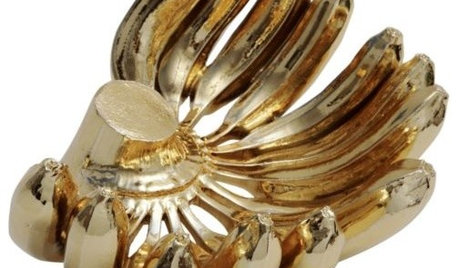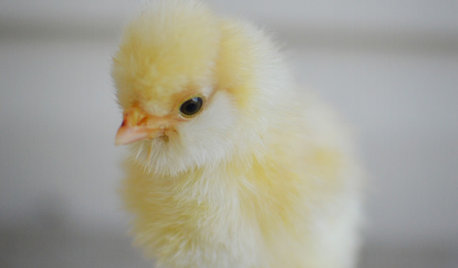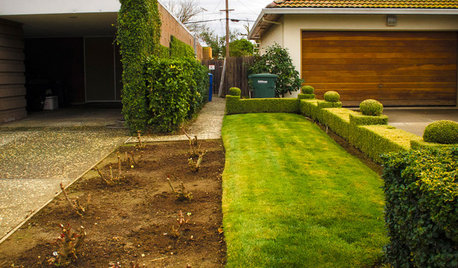Where to buy "Clean" compost?
swiss_chard_fanatic
8 years ago
last modified: 8 years ago
Featured Answer
Sort by:Oldest
Comments (16)
gardengal48 (PNW Z8/9)
8 years agokimmq
8 years agoRelated Discussions
Where to buy high-quality compost for raised beds?
Comments (13)If you need a quantity, you want to find a bulk soil product rather than bagged - bagged soils will run you at least 3-4 times the price regardless of quality. And you probably do not need all compost - a planting mix or some combo of soil with added organic matter is better than 100% compost for raised beds. Don't let folks make you feel guilty about buying soil or compost. Not everyone has the luxury of time or space or ingredients or ability (or even community permission) to make their own compost or in the quantities required. And you cannot "make" soil so if you need to fill a bunch of raised beds, importing soil is the only reasonable alternative. Folks in very urban areas do it all the time and it is becoming more and more common in suburban locations, especially those with small lot sizes and crummy native soils. Check this place out - they are throughout CA and look to have a decent product. They deliver themselves but only on large orders but they also supply various retail outlets. Call and see who might be available close to you. If THEY don't deliver, rent a pickup from uHaul or wherever or borrow a friend's.......it will still come out cheaper than buying umpteen bags. The Premium Planter Mix is what I'd go with............or you can do a part load of that and a part load of the compost. Check the analyses first :-) Here is a link that might be useful: SoCal bulk soil supplier...See MoreRaised bed garden going bad? Where do I buy compost?
Comments (6)Before purchasing anything labeled "topsoil" think about what it is you expect it to be. Since you already returned something being sold as "topsoil" since it was 80 percent clay would you expect other sources of "topsoil" to supply anything much different? A good garden soil will have about 92 percent mineral and about 8 percent organic matter which can be compost, leaf mold, shredded leaves, etc. I would not rely on the sellers assurances that what the seller is selling is what I want and have asked for about a 1 cup sample to test myself using this simple test. Soil test for organic matter. From that soil sample put enough of the rest to make a 4 inch level in a clear 1 quart jar, with a tight fitting lid. Fill that jar with water and replace the lid, tightly. Shake the jar vigorously and then let it stand for 24 hours. Your soil will settle out according to soil particle size and weight. For example, a good loam will have about 1-3/4 inch (about 45%) of sand on the bottom. about 1 inch (about 25%) of silt next, about 1 inch (25%) of clay above that, and about 1/4 inch (about 5%) of organic matter on the top...See MoreWhere to buy compost
Comments (10)Don't know how good their products are but when I ran a search found following: County Conservation Company in Sewell, NJ http://www.countyconservation.com/Source/Prod/cc-products.htm Cape May County Munc. Util. Auth. They have composting facility from tree, branch, leaf, grass collection. http://www.cmcmua.com/ From their website Camden County MUA doesn't seem to do anything but sewage processing. Other than letting your fingers do the walking in the Yellow Pages and chancing a vendor without recommendation I don't know any better than you where to get this stuff unless I could find it at Lowe's, Home Depot or a local nursery. This is my first year trying some gardening at my father's house and I feel lost with all the details involved! I've actually ordered some recommended "soil amendments" online and paid to have them delivered. Hopefully something will break ground next spring and bloom...LOL. Good luck!...See MoreWhere to buy compost near OKC?
Comments (1)Dirty Harry's. a/k/a Murphy's. 1-800-TOPSOIL. Call first. It's next to the stockyards, but if the idea of that bothers you, ask for the Norman Green. Ask them about minimum purchase, bringing your own trailer, having it delivered, etc. I haven't priced them since I started doing my own....See MoreLloyd
8 years agodorkstenia
8 years agotoxcrusadr
8 years agoglib
8 years agodorkstenia
8 years agoLoneJack Zn 6a, KC
8 years agolast modified: 8 years agodorkstenia
8 years agorayzone7
8 years agotoxcrusadr
8 years agogardengal48 (PNW Z8/9)
8 years agolast modified: 8 years agoLoneJack Zn 6a, KC
8 years agolast modified: 8 years agogardenshine
8 years agoLloyd
8 years ago
Related Stories

GARDENING GUIDESGet on a Composting Kick (Hello, Free Fertilizer!)
Quit shelling out for pricey substitutes that aren’t even as good. Here’s how to give your soil the best while lightening your trash load
Full Story
REMODELING GUIDESWhere to Splurge, Where to Save in Your Remodel
Learn how to balance your budget and set priorities to get the home features you want with the least compromise
Full Story
KITCHEN DESIGNWhere Should You Put the Kitchen Sink?
Facing a window or your guests? In a corner or near the dishwasher? Here’s how to find the right location for your sink
Full Story
DECORATING GUIDESDecorate With Intention: To Buy or Not to Buy
Before you make your next home-decor purchase, ask yourself these 10 questions
Full Story
PETSWhat You Need to Know Before Buying Chicks
Ordering chicks for your backyard coop? Easy. But caring for them requires planning and foresight. Here's what to do
Full Story
HOUSEKEEPINGHow to Clean Your Fridge, Inside and Out
Keep your refrigerator clean and fresh, while you gain storage space and lose those ‘UFOs’
Full Story
HOUSEKEEPING20 Things You Might Be Forgetting to Spring-Clean
Clean these often-neglected areas and your house will look and feel better
Full Story
MOST POPULAR33 Magic Household Cleaning Tips
Houzzers from around the world share their tips for transforming housework into child’s play
Full Story
HOME TECHHome Tech: Where Is My Robot Housekeeper?
We haven't mastered the all-purpose humanoid house cleaner, but these gadgets make quick work of chores
Full Story
EXTERIORSWhere Front Yards Collide: Property Lines in Pictures
Some could be twins; others channel the Odd Couple. You may never look at property boundaries the same way again
Full Story




toxcrusadr